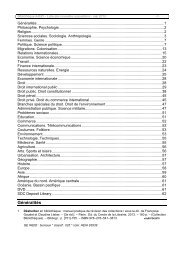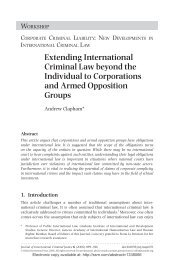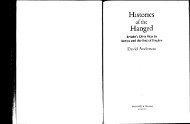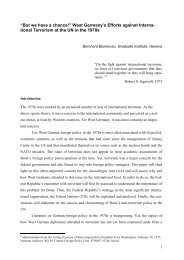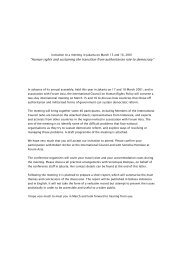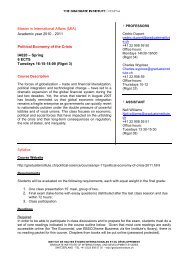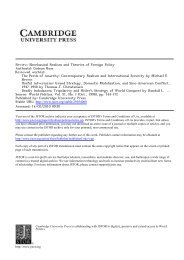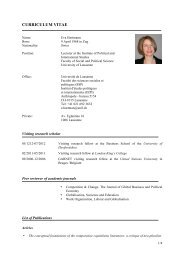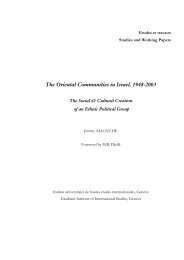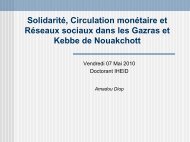Download [pdf] - The Graduate Institute, Geneva
Download [pdf] - The Graduate Institute, Geneva
Download [pdf] - The Graduate Institute, Geneva
You also want an ePaper? Increase the reach of your titles
YUMPU automatically turns print PDFs into web optimized ePapers that Google loves.
COUNTERPIRACY UNDER<br />
INTERNATIONAL LAW<br />
Stuart Casey-Maslen and Alice Priddy<br />
<strong>The</strong> <strong>Geneva</strong> Academy launched its first Academy Briefing, Counterpiracy under International Law, at<br />
the Villa Moynier in September 2012. A rapid growth of piratical attacks over the past ten years,<br />
especially off the coast of Somalia, but increasingly also in the Gulf of Guinea, has led to an international<br />
effort to address the problem.<br />
Existing international law, notably in the Law of the Sea Convention, is generally adequate to counter<br />
piracy. What is lacking is political will and funding to prosecute and incarcerate pirates while<br />
addressing the root causes of piracy.<br />
<strong>The</strong>re is, however, an urgent need to clarify the lawful use of force by private maritime security contractors.<br />
When and in what circumstances they may open fire on another vessel on grounds of selfdefence<br />
remains underdeveloped. Detailed guidance for the use of force (including warning shots)<br />
by contractors would be a valuable next step. <strong>The</strong> Briefing seeks to indicate how this could be<br />
elaborated.<br />
Academy Briefing 1. <strong>Geneva</strong>:<br />
<strong>Geneva</strong> Academy of International<br />
Humanitarian Law and Human<br />
Rights. 2012. 55 p.<br />
THE DRAFT ARMS TRADE TREATY<br />
Stuart Casey-Maslen, with Sarah Parker<br />
Millions of people around the world suffer as a result of poor regulation of the arms trade and illicit<br />
trafficking of arms, while hundreds of thousands are killed or injured by conventional arms. A global<br />
Arms Trade Treaty needs to be adopted to set out the parameters of responsible and licit transfer of<br />
weapons. A UN conference in New York in July 2012 failed to achieve consensus on the text of a<br />
treaty, but did produce a draft text. In October 2012, the <strong>Geneva</strong> Academy launched an Academy<br />
Briefing at the <strong>Institute</strong> to assess the adequacy of this draft.<br />
Many challenges must be overcome in order to secure the adoption of an effective ATT. Among the<br />
core issues to be addressed is the need to prohibit transfers of weapons that will likely be used to<br />
commit genocide, crimes against humanity, or war crimes. Where other serious violations of international<br />
human rights or humanitarian law are probable, transfers of weapons should not be authorised.<br />
<strong>The</strong>re should be no loophole for transfers through defence cooperation agreements, and<br />
ammunition and munitions should be brought within the scope of the Treaty.<br />
Academy Briefing 2. <strong>Geneva</strong>:<br />
<strong>Geneva</strong> Academy of International<br />
Humanitarian Law and Human<br />
Rights. 2012. 39 p.<br />
Academy Briefings are available in PDF format at<br />
http://geneva-academy.ch<br />
≥<br />
LA REVUE DE L’INSTITUT I THE GRADUATE INSTITUTE REVIEW I GLOBE I N11 Printemps I Spring 2013<br />
41


![Download [pdf] - The Graduate Institute, Geneva](https://img.yumpu.com/23370020/42/500x640/download-pdf-the-graduate-institute-geneva.jpg)
